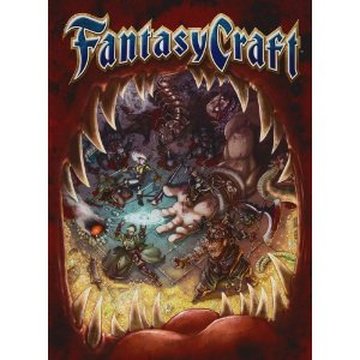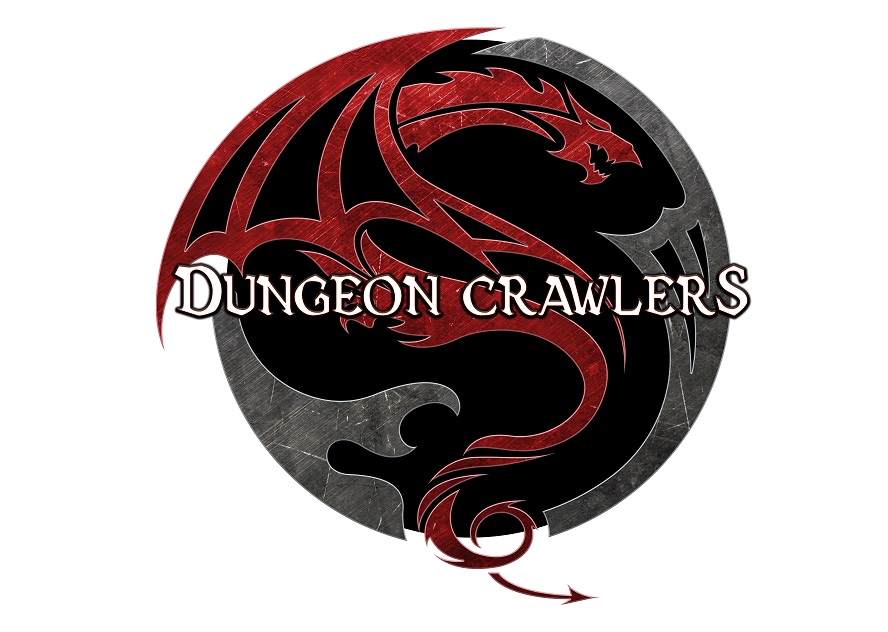 The wonderful thing about role-playing games are that there are so many different kinds out there. There are some games out there with almost no rules, where everything in the game is about telling a story. There are some that are played with cards, and some that played with tokens or poker chips. There are even some out there with a several rules that don’t use any dice. The most obvious example of this kind of game is Dungeons & Dragons. The Forgotten Realms setting is one of the best settings out there that is full of life and rich vibrant cultures. However when 4th edition was released the fun of roleplaying seemed to have been removed from the game. Fantasy Craft is very similar to D&D 3E and Pathfinder, to the point that you can actually use your old modules and monster manuals with the Fantasy Craft game. There's a little bit of conversion to do, but frankly, if you're committed enough to make a character for this game, you've probably got the free time to translate your kobolds. Whereas Pathfinder sought to ‘patch’ D&D 3.5, Fantasy Craft takes the core of the OGL 3.5 and uses it to build a game that could best be described as first a cousin rather than a sibling. Frankly, I like it more than trying to salvage the most cumbersome aspects of 3.5, but even for those with an affinity for the old stuff it’s close enough to warm the cockles of any nostalgic 3.5 gamer. There are plenty of classes, many of which are tooled for things OTHER than combat (I know right?). The upshot is that Fantasy Craft spends ample time supporting things other than combat, so that these classes are viable. Spell casting is done entirely with a skill based system and encounter-based skill points. Tons of feats help customize your spellcaster’s abilities within this system so that no two spellcasting PCs should come out the same. “Divine” magic works in a sort of modified 3.5 domain style system, which are called Alignments. Alignments provide a satisfying set of rules and flavors to separate the divine casters from arcane casters (to use 4th edition parlance). If there’s one place that the system is different than 4th edition is that different character types FEEL very different. For some, this is a great draw, for others this smacks too much of the unbalanced older days of D&D. For me, it’s a neutral aspect, I miss the variety of old D&D, but I’m glad that I can finally play a rogue and not be completely worthless. Fantasy Craft’s treatment of social stats, adventuring downtime, holdings, and more are one place I would say it’s definitively better than any other rivals out there. It’s quite possible to cannibalize these aspects to fit into any d20 type game. However it’s not a perfect fit into all games, but the rules on Reputation, Prizes, Favors, Holdings, and Down Time are well thought out, balanced, and a satisfying numeric solutions to the rather difficult task of fairly adjudicating these sorts of actions in most fantasy RPGs. For anyone that has thought about taking their campaign away from the adventuring-only archetype this provides tons of great ideas and guidance to make that process simple, satisfying, and ultimately rewarding for both DMs and Players. Combat includes a system where there is no more hit points. You've got vitality, and you've got wounds. Wounds are pretty much set from the beginning of the game, but vitality can go up every level. Wounds represent the actual punishment your body can take, and vitality represents how good you are at dodging damage. So initial damage will have to get through your vitality first, and your vitality also heals between battles. This is good news, because it means you don't have to stop after three rooms of a dungeon and barricade the doors so everyone can get some sleep to heal before carrying on with the adventure. There is actually a bunch more examples of cool modular rules, if I were to keep going. Fantasy Craft is a very robust set of tools meant to allow you to play exactly the kind of fantasy game you like, whether you prefer gritty games with gruesome weapons or high adventure with magical blunderbusses. If you take the time to weed through and pick the rules you want, and dump the ones you don't, you'll have a campaign and a game that is your own personal creation. This game is a very well-designed game that will provide for an incredible amount of flexibility and fun!!
0 Comments
Leave a Reply. |
Archives
August 2021
Categories
All
|

 RSS Feed
RSS Feed








